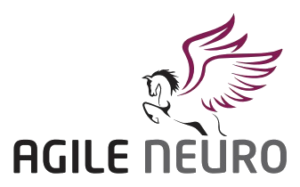
We all remember our first day at work. Right after graduation or post-graduation, it is the first step into ‘life-reality’. There are lot of ‘happy’ realizations when it comes to crossing the valley between Campus and Corporate life. The first realization is about how the theory in the class differs from the practical life in an organization. Suddenly, you have people ‘telling’ you what to do. No one probably told you in college to attend the lectures, because we all were the emperors of the campus. So, now we have people telling us what to do, how to do, by when to do and what if we don’t do it. Domain knowledge deficits can be closed by undergoing some trainings or certifications. But then there are other deficits, especially related to dealing with new situations, surprises, shocks, astonishments and of course people. We all have ‘Difficult People’ in our lives and a lot of them are at workplace. Dealing with these deficits require Emotional Fitness and Agilities. In simple terms, you may address Emotional Fitness as Emotional Quotient (EQ). One of the less known realities is, you can’t increase your IQ, that is, Intelligence Quotient. But you can definitely increase your EQ. According to Stephen Covey, it is the Emotional Quotient which is more important to grow in your life rather than Intelligence Quotient. The same thought has been echoed by Jack Welch and other management gurus.
For some of us, it is very simple and claim to have it sorted out. “Toe the line”, to make it big in your career. It is very simple for these Task-masters because they claim to leave their feelings at home when they come to work. Some might say, this is the best way of living your work-life. Sounds very convenient but it is far from Truth. We are all Human Beings but it’ll be apt to say, we are ‘Emotional Beings’. So even if we claim to be able to not bring emotions at workplace or any other place that demands objectivity or ‘being right’, it is actually the emotions that we are riding on. So many people have been sacked because of their lack of control of their Emotions. We have a choice of feeling what we want. We have a choice of running our emotions rather than emotions running us. Your learnt skills which help you in your job are your competency. However, Emotional Intelligence is a competency required in today’s time on high priority. Yes, indeed it is a competency because it involves 4 aspects: Self-awareness, Self-management, Other’s-awareness and Other’s-management.
So, we have a quick cheat-sheet to be Emotionally fit at workplace. After all Emotions can make or break us:
- Respond and don’t react: We have crucial scenarios at workplace such as meetings, presentations, intimidating emails, client interactions, performance reviews etc. which test our capability of being in the right frame of mind. These situations might drive us to being impulsively angry, nervous, hurt, upset etc. We need to gather our thoughts to do the right thing. Oh yes! The correct word over here is ‘thoughts’. Our brain is made up of 3 parts. No, we are not going through a neurology class, let us just keep it simple. 3 parts are reptilian brain which reacts, emotional brain which feels and thinking brain (cerebral cortex) which thinks. To cut the long story short, information through your 5 senses first go to the reptilian brain, then through emotional brain and finally reaches the thinking brain. Which means it takes time to derive some rationale from any situation and we could probably ‘react’ first, or take decisions driven by emotions. It takes time to size up the situation and do the right things because it involves the ‘Thinking Brain’. To make things worse, the reptilian brain will shut off the thinking brain in case of any reaction. Let us say, someone pushes you. You react through reflex action and try to hold on to something and this doesn’t involve thinking because if it does, it’ll be too late. In simple words, responding involves thinking. Give yourself some time before you respond to difficult situations. There are various ways of doing that. Have an ‘Internal Dialog’ which will pull you out of the negative emotion. Some people listen to music to deal with their nervousness. One of the good ways of not responding is putting yourself in someone’s shoes who you know is very good in managing own emotions. You start acting like that person.
- Reframe a negative situation: Earth has a north pole but not without a south pole. Atoms have a positive, negative and neutral entities. If there is day, there is night and vice-versa. Hence, there is a positive in every negative. If you change the frame of any painting, it starts appearing different. Look at the same situation from a different perspective and you will find a lot of positives.
- Move to the solution zone: There is no point wasting time sitting there and cribbing about the issue. If you think about it, you actually have no choice but to think of what you should do next. Ask yourself a question, what can I do about it? A very simple example of this; Let’s say, there is too much traffic on your way to work everyday. you get thoroughly tired. What do you do about it? One solution is trying to start early in the morning to beat the traffic. You may work on other options if they sound good to you like changing your job. The reality is, if we have problems, we definitely have solutions. It all boils down to finding it and implementing it. You may have other problems as well, like having a micromanaging boss or demanding client. The concept is that staying in the state of helplessness doesn’t work. It just wastes your time. Think about the solution and move to implement it right away because that will save your time and build your morale.
- Stop worrying: Worrying only gives you high blood pressure and other allied diseases. There is actually no place for worrying if you think about it. If you can do something about the problem, do it and stop worrying. If you can’t do something about the problem, how is worrying going to help you? If you can’t do something right away, schedule it in your mind and stop worrying, as simple as that.
- Take yourself out of the situation and be the third person: We all do this when we watch any game on TV. We have our own strategies of what the player or the team should have done. Seems so simple. But when we are in some problem, do we become the fly on the wall to re-access the situation? Dissociate yourself from it and you will get wisdom in terms of what needs to be done.
There are many more but certainly these are the 5 best ones to start with. Emotions certainly are a part of our circle of influence which means we are and should be in control of them. The competency is actually in-built but may need some ‘waking-up’ sometime.









